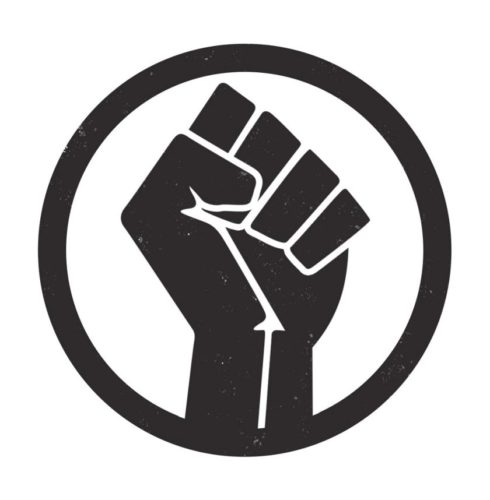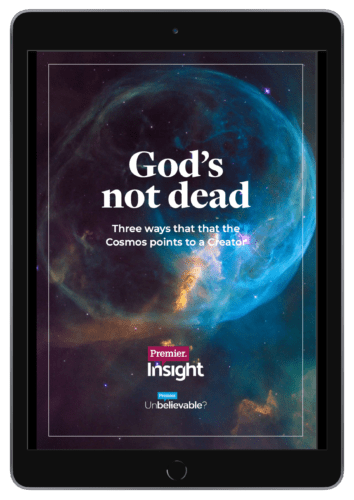
Critical Theory Misses the Real Oppressor
Posted:Erik Strandness says the widespread adoption of Critical Theory on race, gender and sexuality has become a barrier to reconciliation and mutual flourishing.
Critical Race Theory (CRT) has become a hot political and theological topic as of late. Last year Justin Brierley hosted a lively conversation on the subject between Owen Strachan and Jermaine Marshall. Some, like Marshall, feel it is an important starting point for conversations about race relations while others, like Strachan, believe it makes the problem worse by walling us off into impenetrable categories of oppressed and oppressor.
CRT, and the larger Critical Theory (CT) in which it is embedded, has left the ivory towers of academia and now walks the streets and alleys of the real world. Many welcome it as a knight in shining armor while others are suspicious that the new kid in town is up to no good. The vast majority of people abhor racism but when the discussion is packaged in the form of a theory that wields political power and becomes a cultural rule of law, people get very suspicious.
The initial intellectual goal of Critical Theory has been expanded to include academic justification for a reigning postmodern sentiment defined by identity politics, tolerance, and relativism. Sadly, the important issues raised by CRT have been used as a fireworks show to distract us from an even more powerful wizard lurking behind the curtain, pulling cultural levers, and attempting to redefine reality itself.
How should Christians who worship a God who told us to ‘Learn to do good; seek justice, (and) correct oppression’ (Isaiah 1:17) and sent His only Son ‘to set at liberty those who are oppressed’ (Luke 4:18), navigate the treacherous waters of Critical Theory?
Broadsides
Critical Theory as popularly practiced is a no-win game because there is no category for reconciliation. You either need to embrace victimhood or feel guilty for privilege. In true postmodern fashion, it makes our feelings the barometer of truth and, instead of breaking down intellectual barriers, it reinforces emotional walls. One nation under God becomes a loose affiliation of breakaway intersectional republics that restrict intellectual commerce and starves its citizens.
I would argue that most Christians aren’t concerned with the nuances of Critical Race Theory but see it as a movement designed to divide the world which offers only finger pointing and not dialogue as the solution. Christians wanting to be part of the solution are paralyzed to act because they are told that they are inexorably part of the problem. Critical theory does us a favor by asking us to look for oppression but seems to leave no room for mediators. The problem is that in postmodern CT there is no parley, only broadsides.
Pigment or Practice
General frustration with CRT has been amplified because it has adopted a far more controversial postmodern agenda where we are no longer discussing discrimination based on skin color but are debating about the suitability of behavior. Race does not need to be interrogated but behavior clearly does because it impacts every aspect of culture.
The area where the oppressor/oppressed paradigm has taken on another life is in the realm of sexual identity and practice. The problem is that when you take sexuality out of the bedroom and put it on the front deck people don’t always like what they see. Sadly, we are told that not only must we approve of the display but must give it a standing ovation. We all have skeletons hidden in our closet but they don’t define us. We need to remember that what makes us unique image-bearers is our curb appeal and not what goes on in the bedroom. We need to unconditionally love people for the image they bear but not the behavior they practice.
Embracing people of color doesn’t entail a cultural revolution, but embracing an alternative sexual agenda does because it has important practical consequences for society such as redefinition of identity, marriage, family and gender. Skin pigmentation can buy you in a minority or a majority depending on where in the world you live, but alternative lifestyles represent a universally small minority of the population and therefore must be evaluated in that light.
When we treat people of varying skin colors equally we pay honor to our shared divine image but when we accept all behavior equally we radically call into question what it means to live as an image-bearer. These are two different things. Practice is not pigment so before we invoke oppression and oppressor in the ways we behave, we need to ask some very important questions about the impact those behaviors will have on society.
Vizzini’s Folly
In the Princess Bride, Vizzini carelessly uses the word “inconceivable” in conversation with Inigo Montoya. He points out that the word Vizzini is so fond of using doesn’t mean what he thinks it means. Our postmodern culture has adopted this same “Vizzinian” approach to language by deconstructing words and changing the way in which they are commonly understood in order to move its agenda forward. Ironically, it considers words fluid until it needs to beat someone over the head with them and then places them in a lexical freezer. Sadly, the time-tested approach of defining terms has been replaced by a postmodern move to leverage them for their emotional power. Strictly circumscribing the meaning of words, rather than making for productive conversation, is now viewed as violence against one’s very being.
For instance, while “truth” has lost its original meaning, it continues to be a very powerful word. We all know that saying “my truth is my truth, and your truth is your truth” is more impactful than saying “my opinion is my opinion, and your opinion is your opinion.” Nobody wants to deny truth, so if you conveniently cloak your opinion with the cape of “truth” then it takes on superpowers, and if anyone questions your credentials you can accuse them of breaking into your fortress of solitude, the safe space where you foster the illusion that you are a superhero.
Postmodern Kryptonite
Critical Theory has become a battlefield blanketed with linguistic landmines that must be disarmed if we are to meet in the middle for constructive peace talks. In order to effect meaningful conversation we need to specifically define what we are talking about before we get generically angry. Since CT is concerned with the oppressed-oppressor paradigm we need to carefully define what we mean by oppression because similar to the word “truth,” the word “oppression” has also been weaponized.
What does it mean to oppress someone? Merriam Webster defines oppression as unjust or cruel exercise of authority or power. Unfortunately, in true postmodern fashion, this definition has been altered by equating unjust or cruel exercise with disagreement, query, and debate making it difficult to even have a conversation since the mere act of asking a question is viewed as an attack on “one’s truth” and the hurt feelings that result are marshalled as evidence of oppression. Interestingly, the dictionary, the foundation of meaningful conversation, has become kryptonite to the postmodern agenda, so in order to avoid opening the pages and risk weakening their emotional appeal they gather them up for a book burning.
Intersectional Gnosis
Since postmodern truth is measured by feelings, the more intersectional you are, the more truth you possess. Intersectionality is treated like a type of gnostic secret knowledge possessed by the very few. Culture anoints them as shamen and sha-women who obtain ever greater spiritual powers with each new oppression. Surprisingly, the more they deviate from the rest of the world the more qualified they are to speak about the world. These postmodern gurus consider the experience of the average human just too mean. They try to normalize the fringes but find reality an unwilling partner. People, however, not wanting to be accused of being haters, sit at their feet hoping that if they reject their worldly privilege they can achieve tolerant enlightenment.
Enforcement Arm
Critical Theory is frequently tied to Marxism and the struggle between a small group of cultural elites and the working masses. Interestingly, the modern iteration of critical theory turns this idea on its head and makes the majority the oppressor and the minority the oppressed. Marxism has a decided advantage because it has the numbers to make revolt a real possibility. Groups defined by identity politics, however, do not because they represent such a significantly small percentage of the population. If this is true, then how can they wield power?
In order to effect change they must force the majority to eat its own and since this cannot be accomplished through reason they must instigate an emotional feeding frenzy by spilling the blood of their critics in the water. Since they cannot wield brute force they must weaponize words and ideas and then enlists CT as its enforcement arm. CT thereby becomes a postmodern legal corpus legislated by emotions and not facts. In the end, all critical theory does is replace one oppressor with another but it has the decided advantage of claiming diplomatic immunity due to its minority status every time it abuses its power.
Cudgel or Conversation
I find it interesting that when theories become cultural laws they invariably are enforced. The Neo-Darwinian theory of evolution has become a law that demands obedience from the scientific community. Neo-Darwinian evolutionary theory has gone from an interesting idea worthy of conversation to a litmus test for scientific integrity. Adherence has become the metric for hires and tenure. It has silenced voices that try to remind the scientific establishment that it is just a theory. Sadly, postmodern critical theory is no different because it also has been transformed from an interesting sociological idea into a cudgel of conformity.
The Real Oppressor
The postmodern appropriation of critical theory accurately identifies oppression as a problem but inappropriately pins the blame on the masses while letting a small minority off the hook and bestowing upon them the divine right of a king. It appropriates the concept of original sin by labelling the majority as bad apples but then deviates from the script by allowing a small group to become God-like, capable of discerning between good and evil, and forcing the rest of us to bow at their feet. The situation will persist until we are willing to acknowledge that we all contribute to the problem. We are united because sin is an equal opportunity oppressor so instead of dividing ourselves by playing the blame game we need to focus on the common enemy and rally around the One in Whom “There is neither Jew nor Greek, there is neither slave nor free, there is no male and female, for (we) are all one in Christ Jesus.” (Galatians 3:28)
Erik Strandness is a physician and Christian apologist who has practiced neonatal medicine for more than 20 years.
Watch the Unbelievable? debate about Critical Race Theory.
